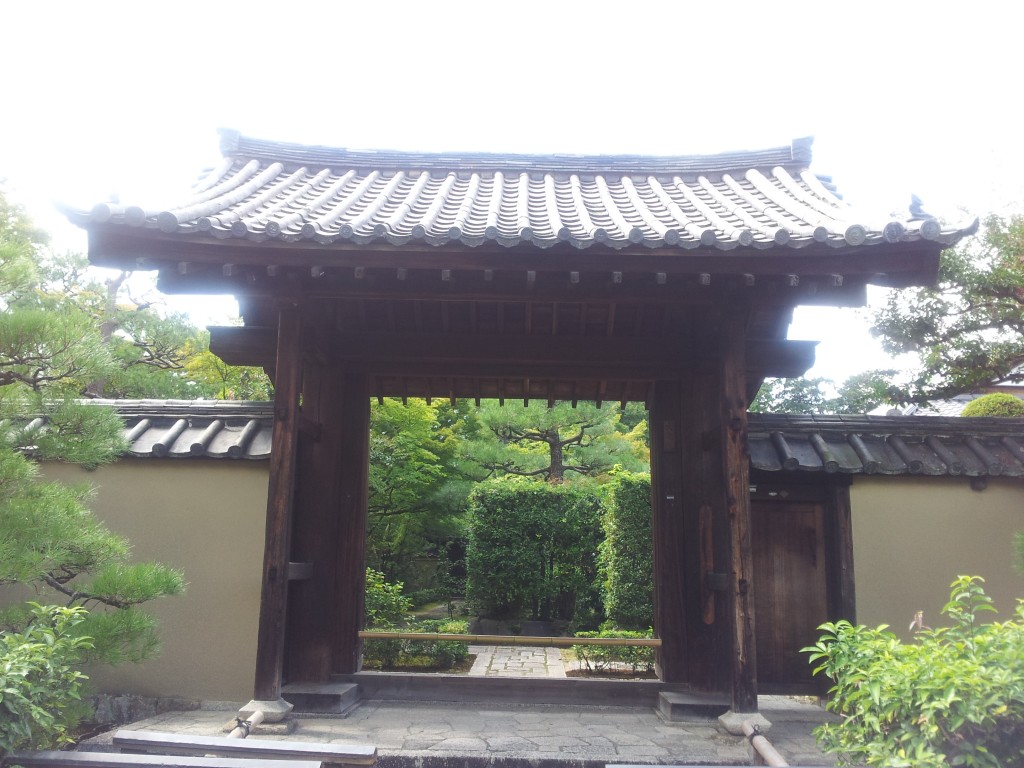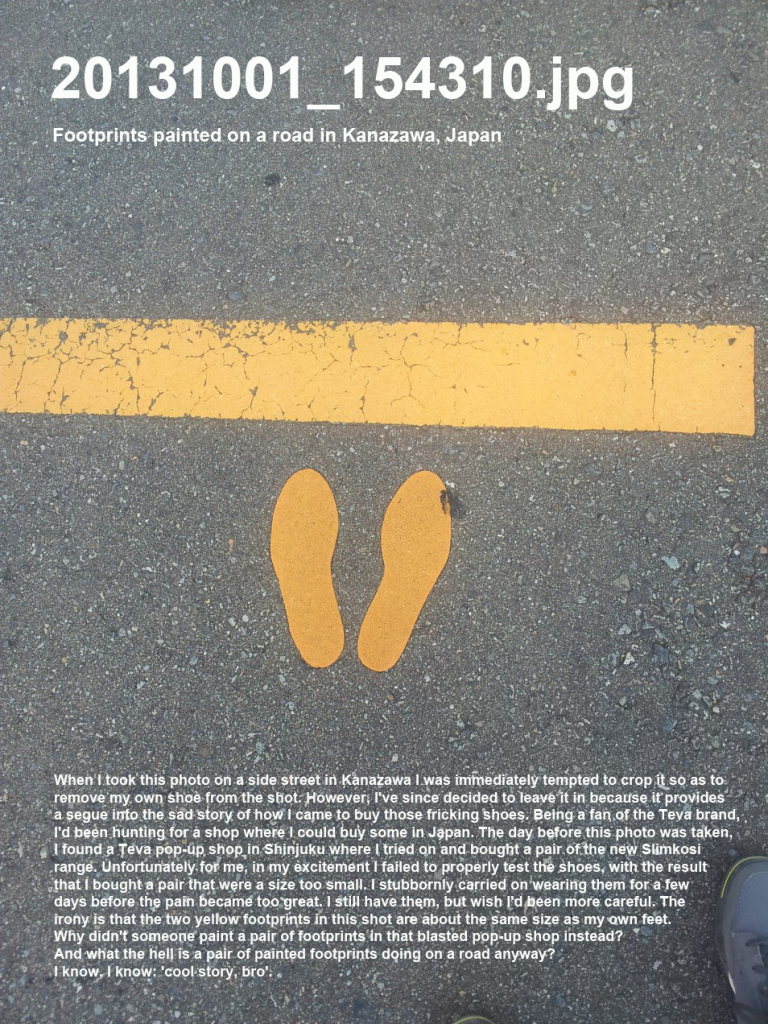What is Zen?
Zen is both a word and a practice. It’s the Japanese version of ‘Chan’, which is a transliteration of the Sanskrit word for ‘meditation’. To use the term ‘Zen meditation’ in English implies a redundancy: meditation meditation. Zen writing also implies a double meaning: meditations in a mediated form (writing).
I first meditated at a pretty early age. I have a memory of my dad making us lie down on the lounge room floor and listen to Tubular Bells (it was the late 1970s). But meditation was also a background constant in my Catholic upbringing. We meditated on school retreats, or else at school.
This was the lying-down, deep-breathing variety of meditation. I guess it’s closer to Hatha yoga in form.
It might be hard to believe, I know, but my year 10 maths teacher once made us meditate in class. At the conclusion he said, ‘You are now going to have a great day’. This lesson struck me as both epic and banal. But he was actually right.
Since then I’ve dabbled in self-guided meditation and relaxation. I’ve also explored meditative writing practices such as haiku and renga. My written explorations of Buddhism have veered between irreverence and transcendence.
But I guess that’s Buddha.
My own private (Swedish) Zen failure
It wasn’t until recently that I attempted Zen, at a meditation centre on Södermalm, in central Stockholm.
At the time I was looking for a change of scene, as they say. I’d been curious about the rigour and emptiness of Zen since moving to Sweden in 2011. It had to do with Swedish pine forests in winter, and the way they resemble Japanese or Korean scenery.
Or was it the bleak Swedish winter that drove me to pay 400 SEK to stare at a wall? Did I mention that someone slapped me on the back with a giant stick?
Whatever the reason, I got through one Zen session (not sesshin, that’s for the professionals). I never went back, despite dreams of a life of silence and vegetable tending at the Zengården retreat centre.
My major difficulty was that, despite my Catholic upbringing, I couldn’t kneel for longer than five minutes at a time. Which is, after all, the longest you’ll ever need to kneel during a standard Catholic mass.
By the end of the first part of the session I couldn’t feel my legs at all. Then came a break in proceedings, which involved walking in a circle around the room. I gave the leader a pre-arranged signal and he brought me a chair.
So, I spent the second half of the session sitting there and staring at the wall. Which is what it’s like to be stuck on public transport in Stockholm in the middle of winter.
Anyway, that was a fail for me.

Returning to Zen writing practice
Yet the practice of Zen—in this case, counting to 10 over and over again—is something that exists within me.
I’ve always counted my steps on stairs. It’s a habit that buying a wearable exercise tracker has diluted somewhat. But I keep track of my breathing while swimming. And I measure my cadence to avoid boredom while cycling.
Sitting, swimming, walking, cycling, writing.
Breathing.
The simplicity of Zen practice is both beguiling and deceptive. The notion of returning to practice, again and again. Returning to the human breath as the basic measure of time. It’s so simple that, for me anyway, my instinct has often been disbelief: Is that it? Breathing?
Does this disbelief provide a business model for meditation and mindfulness apps? I’m thinking Headspace, and real-world ventures like Zengården. That’s not a criticism either—rather, an acknowledgement that it’s possible to over-egg the simple.
Now, where was I? Oh yes, Zen writing.
But first, some more biographical details
One year ago I quit my job. I’d been working as a Publications Manager for an international organization in Stockholm. My resignation brought to an end a long decade as a ‘professional’ editor.
At the time I intended to spend 12 months working on my own Zen writing. I had the feeling that editing other people’s writing had killed off my creativity.
While I wasn’t wrong, the process of rediscovering my own words has been quite complicated. I’ve realized that working through a decade’s worth of unfinished projects is impossible. There will always be a new idea to explore, a new novel to conceptualize.
Instead, I’ve learnt that zooming in on the micro level—the word, the phrase, the sentence—is more important. Living in the sentence, the written version of the breath, both grounds and frees me.
That might sound daft but at least it’s my daft.
I’ve also re-learnt that the best way to re-energize my skills as a Zen writer is to spend a lot more time reading. When it comes to meditative practices, reading is right up there. But, as with eating, it all depends on what you’re ingesting.

How to write a book on Zen writing that people will actually borrow from the library
My local public library is small. I’m often forced to travel to the bigger inner-city libraries to find decent books. One library in particular has a great collection of recent books. I go there to borrow biographies (I love a good rock-music bio), non-fiction and books about writing.
I also love to rock up and borrow the first thing I see on the shelf. This is how I discovered Ocean Vuong’s On Earth We’re Briefly Gorgeous. It’s a book that raised many questions for me (and others), including old chestnuts such as ‘what is a memoir?’ and ‘is this autobiographical?’.
But the book got my brain working. When I returned it to the library, I noticed another book on the shelf reserved for books about writing. It was Alexander Chee’s How to Write An Autobiographical Novel. I picked it up, and noticed a testimonial from Ocean Vuong on the cover:
This book makes me feel possible.
Ocean Vuong on Alexander Chee’s How to Write an Autobiographical Novel (2018)
Well, I borrowed that book immediately. Over several weeks, I read each of the essays with a growing sense of excitement. This was the kind of book I needed to be reading. Equal parts craft, memoir and meditation. On several occasions, having read an electrifying essay, I lay awake in bed, amazed, for hours.
Reading. Breathing. Thinking.
Chee’s book, in turn, led me to seek out one of his writing teachers, Annie Dillard, to whom he devotes a whole essay. I tracked down and read one of her non-fiction collections, For the Time Being, published in 1999. And in it I found the following quote:
Work, work! … Work! … Don’t waste a moment … Calm yourself, quiet yourself, master your senses. Work, work! Just dress in old clothes, eat simple food … feign ignorance, appear inarticulate. This is most economical with energy, yet effective.
Chan Buddhist monk Daman Hongren (601–674), quoted in Annie Dillard, For the Time Being (1999)
Zen writing for beginners (like me)
Work, work! For the past 12 months, I’ve needed someone to say this to me. Get on with it! If time passes, and things remain unwritten, that’s no way to live. The fact that this advice comes from a seventh-century Chan monk is neither here nor there. If it makes sense, do it. Work!
The trick, I’ve found, is to not even think of Zen writing as working. To not even think of Zen writing at all but instead count the letters, syllables, words. Even the spaces between words. To gather them in a line, a sentence, a paragraph. And then to repeat until the writing’s done.
Of course, the words and sentences still need to make sense. For me, at least. I can well imagine comprehension being of little interest to some writers. I used to think that way about writing poetry.
But my obtuseness got me into trouble with people I cared about. And I ended up losing interest in one of the very few things that has given me pleasure and meaning in my life.
Work! Zen! Writing!
Now I start with the line and let it take me where it will take me. I hope this makes sense to someone reading this post. Failing that, I hope it makes sense to me the next time I come here to write it.




This makes sense to me.
Thanks a lot, Simon! Posting to this site often feels like staring at a brick wall. Knowing that someone else is reading means a lot.
This is wonderful reading. Thanks for sharing, David!
Thanks Lawrence, I’m glad you liked it!
This was beautiful, David. It resonated a great deal with me, as I often sit staring at a wall and beating myself with a stick over my (perceived? real?) failures in writing. Your words felt like a gentle encouragement. Thanks for sharing them!
PS: “Or was it the bleak Swedish winter that drove me to pay 400 SEK to stare at a wall?” Sweden in a nutshell!
Why, thank you, Theroux! And may the Zen of writing be with you!